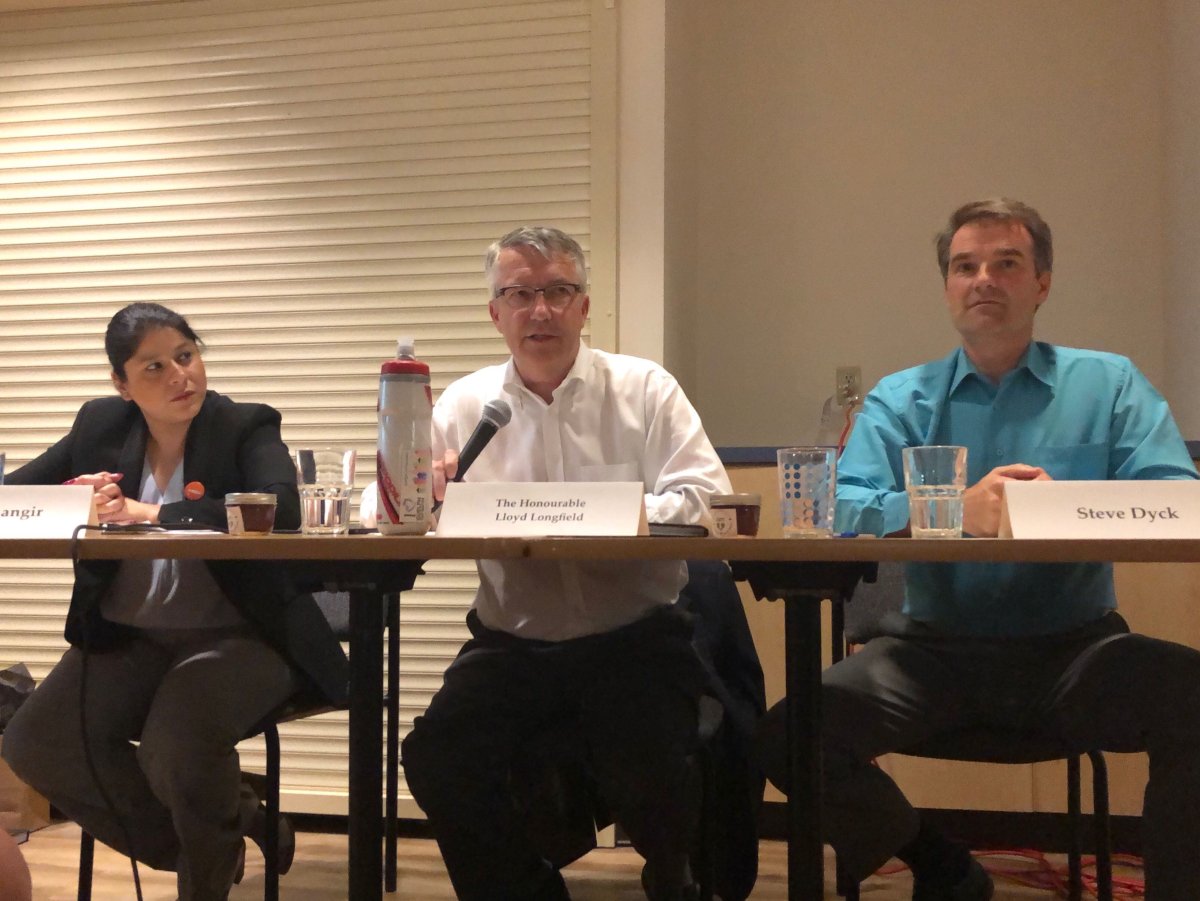The federal election campaign appears to be underway in Guelph after its first all-candidates forum that was held on Tuesday in the city’s downtown.

Liberal incumbent Lloyd Longfield, along with Green Party candidate Steve Dyck and the NDP’s Aisha Jahangir, was part of a discussion on food insecurity at the Guelph Community Health Centre.
The “Eat. Think. Vote.” event was put on by the University of Guelph’s Arrell Food Institute and a local not-for-profit initiative called The Seed.
It wasn’t much of a fiery debate as it was a friendly discussion on how Canada and Guelph can do better when it comes to the affordability and accessibility of nutritious food.
The chat saw the three candidates agree on several matters, including that food insecurity is a health care issue and the root cause of it is poverty.
Longfield praised the work the Liberal government has already accomplished with their national poverty reduction strategy.
“So for we’ve brought 800,000 people, including 300,000 children, out of poverty,” he said.
Longfield said there is still work to be done and the government has committed to reducing the poverty rate by half by 2030.
WATCH: Farming and eating need to change to curb global warming, says U.N. report

According to Dyck, there are many ways the system is broken.
“Too much of the food we grow is wasted and people who need food don’t have access to it,” he said. “We need to do much better.”
He applauded the efforts by Guelph and Wellington County in winning the federal government’s Smart Cities Challenge to create a circular food economy, but said competitions like that don’t go far enough.
“There were 200 cities that applied and only four were successful. This breaks my heart,” Dyck said. “Two per cent is not a success, it is a lottery.”
He called on the government to create real policy and said the Green Party has a fully-developed plan to tackle the issue.
Jahangir promoted the New Democrats’ platform that includes a national food policy and a food waste strategy.
“My work as a registered nurse has helped me to understand the values of addressing root causes of issues rather than applying a pack of Band-Aids,” she said.
“I have seen the federal government implement patchwork programs with limited success.”
All of the candidates agreed the government can do more to crack down on advertising unhealthy foods to children.
They also agreed that more needs to be done to provide nutritious food to Indigenous communities, but first the government must listen to the needs of those communities first.
Conservative candidate Ashish Sachan and Mark Paralovos of the People’s Party of Canada did not attend.
Election Day is Oct. 21.




Comments